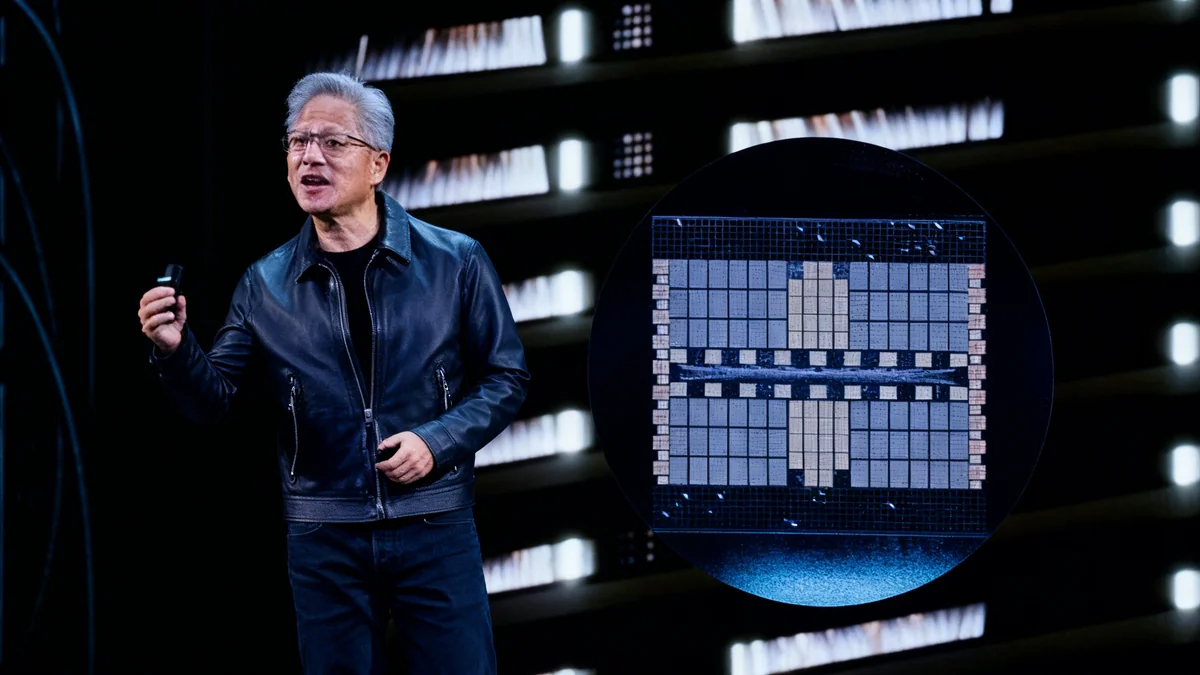Palantir Technologies has secured a major contract with The Boeing Company to deploy its artificial intelligence software across Boeing's Defense, Space & Security (BDS) division. The partnership aims to modernize manufacturing processes, improve production efficiency, and provide unified data analytics for various defense programs.
Key Takeaways
- Palantir will integrate its Foundry AI platform across Boeing's defense, space, and security manufacturing facilities.
- The goal is to streamline production cycles, standardize data analytics, and enhance operational oversight for programs including aircraft, satellites, and missile systems.
- This agreement deepens Palantir's role in the U.S. defense sector and includes AI support for classified national security missions.
- The deal follows a period of strong financial performance for Palantir, with its U.S. commercial revenue growing 93% in the latest quarter.
Details of the Boeing Partnership
The new agreement will see Palantir's Foundry platform implemented across the geographically diverse factories of Boeing's Defense, Space & Security (BDS) unit. This division is responsible for a wide range of critical national security products, from fighter jets and rotorcraft to satellites and missile defense systems.
Palantir's Foundry software is designed to integrate large, complex data sets from disconnected sources. By creating a single, cohesive interface, it allows managers and operators to gain clearer insights into the entire production line. This capability is expected to help Boeing standardize analytics and accelerate decision-making.
What is Boeing's BDS Division?
Boeing Defense, Space & Security is one of the company's three main divisions. It manages a portfolio of over a dozen production lines that develop and manufacture advanced military aircraft, satellites, spacecraft, and strategic missile systems for the United States and its allies.
A key objective of the partnership is to shorten production cycles and improve delivery timelines. By leveraging AI-driven analytics, Boeing aims to identify and resolve potential bottlenecks in its manufacturing processes more efficiently. The deal also involves providing direct AI support for sensitive and undisclosed defense missions, further cementing Palantir's position within the national security apparatus.
"Palantir is on the cutting edge when it comes to leveraging artificial intelligence to accelerate getting critical products, services, and capabilities in the hands of military operators," stated Steve Parker, CEO of Boeing Defense, Space & Security.
Mike Gallagher, Palantir's defense chief, emphasized the urgency of the collaboration. "This partnership will turbocharge production and innovation… America’s enemies aren’t slowing down and neither can we," he said.
Palantir's Recent Financial Momentum
The agreement with Boeing comes as Palantir experiences a period of significant financial growth, driven largely by its expansion into the commercial sector alongside its government work. The company's recent performance has captured the attention of investors and analysts.
Second-Quarter Financial Highlights
- Total Revenue: Nearly $1 billion, a 48% increase year-over-year.
- U.S. Commercial Sales: $306 million, a 93% jump from the previous year.
- Stock Performance: Shares have risen approximately 140% year-to-date in 2025.
In its second-quarter earnings report, Palantir announced it had raised its full-year revenue guidance to a range of $4.14 billion to $4.15 billion. The company also forecasted third-quarter sales of between $1.083 billion and $1.087 billion, which would represent a 50% year-over-year increase.
Palantir CEO Alex Karp described the company's recent performance as "the highest sequential quarterly revenue growth in our company’s history," signaling strong momentum as it secures more high-profile contracts.
A Strategy Focused on Partnerships
Unlike many technology firms that grow through acquisitions, Palantir has maintained a conservative stance on mergers. The company's strategy prioritizes building its proprietary platforms internally and expanding its reach through strategic alliances and joint ventures.
According to its public filings, Palantir reported no material acquisitions last year and confirmed in its Q1 2025 report that it had made no new investments under its previous SPAC-era agreements. This approach allows the company to maintain tight control over its technology while collaborating with industry leaders.
Other Major Alliances
The Boeing deal is the latest in a series of significant partnerships for Palantir. Other key collaborations include:
- UK Ministry of Defence: A five-year agreement valued at up to £750 million ($950 million) to modernize defense data systems.
- NATO: An agreement announced in April 2025 provides allied operations with access to Palantir's AI platforms through the "Maven Smart System."
- Fannie Mae: A collaboration launched in June 2025 to create an AI-powered unit dedicated to detecting mortgage-related fraud.
- The Nuclear Company: A joint effort to develop an AI platform to speed up the construction of nuclear reactors, backed by a planned $100 million investment.
These partnerships demonstrate Palantir's success in applying its AI technology across diverse sectors, from national defense and finance to energy. The new agreement with Boeing represents a significant step in solidifying its role as a critical technology provider for the aerospace and defense industry.





